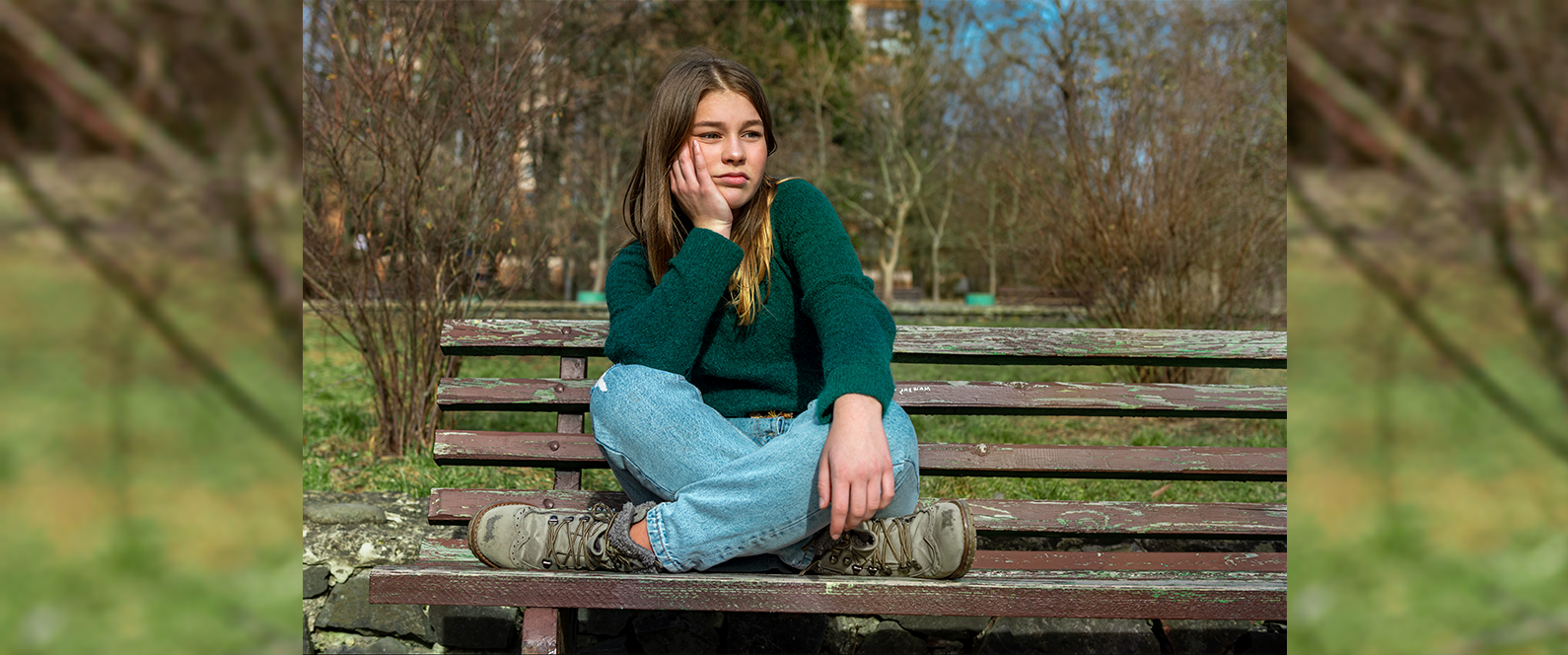COVID-19 and the Young Mind
 The COVID-19 pandemic has affected people worldwide, and adolescents have been affected in their own right
The COVID-19 pandemic has affected people worldwide, and adolescents have been affected in their own right
Good mental health is an essential component of an individual’s overall health. The COVID-19 pandemic has affected people worldwide, forcing us to re-think how we conduct our day-to-day activities. This has led to uncertainty, stress, and anxiety and adolescents have been affected in their own right. The sudden change in the structure of school life, loss of face-to-face interaction with friends and peers and missing out on important social and key milestone events have left many feeling lonely. Additionally, irregular sleeping patterns and increased internet and smartphone usage could have a negative impact on their academic performance, family relationships and hence their overall mental health. Available medical evidence suggests that if an adolescent’s mental health is not taken care of, they might be at risk of developing serious problems in the future that may extend into adulthood.
Most adolescents suffer from some stress even under normal circumstances and deal with this in different ways. However, the emergence of COVID-19 and its impact has been quite dramatic. It is essential to reduce stress in these young, growing minds and support them to become resilient and resourceful. They need to be encouraged and guided towards healthy ways to deal with stress and ease anxiety.
Adolescent psychologists advise that parents should talk to adolescents about their feelings and how they are experiencing the new norm. Parents should listen to them in a calm and proactive way and be supportive of their feelings. Parents should also share with them that feelings of anxiety and stress are normal in such situations and that everyone can experience it. The following strategies can help adolescents cope with their feelings of anxiety and stress:
- Encourage them to express their feelings through art, poetry, drawing, dancing or by playing music.
- Advise them to stay connected with friends and family through video chat. If possible, suggest outdoor meet-ups in small groups with standard precautions, as per the local public health guidelines.

- Motivate them to create a routine with a structure that reflects what is most important for them with a clearly set ‘technology-free-time’. It should include time for schoolwork, helping the family with household chores and to catch up with friends or take part in other activities, as well as regular sleep and wake-up times.
- Encourage them to listen to or follow verified news sources like the World Health Organization (WHO), Centers for Disease Control and Prevention (CDC) and United Nations International Children's Emergency Fund (UNICEF) maybe once or twice a day, to stay up-to-date. Find out if they have heard anything worrying and would like to discuss it. Address any misunderstandings or other false information and reassure them that if we follow the guidelines we can keep everyone safe.
- Share with your adolescents the benefits of eating a healthy balanced diet and its influence on physical and mental well-being.
- Be a role model and show them that engaging in physical activity can help them both physically and mentally. Encourage adolescents to exercise every day or go for a walk with the family. Remember to provide logical explanations and facts about why healthy behaviour such as physical activity is important.

- Find or provide a comfortable environment for adolescents to practice healthy coping skills such as meditation or breathing exercises, and encourage them to take up new hobbies that could be a distraction to avoid unhealthy habits like smoking or drinking alcohol.
Finally, it is important to reassure adolescents that these difficult times will pass, and it is important to stay positive and also be responsible by practicing COVID-19 preventive measures.
The following signs are an indication that an adolescent is struggling and might need help from a mental health professional:
- Severe mood swings and often teary and upset
- Difficulty engaging in activities or to concentrate
- Expressing a sense of hopelessness and helplessness
- Eating unhealthily and sleeping less
- Spending hours in isolation.
To seek help in such situations, call the Mental Health Helpline on 16000 and speak to a healthcare professional.
Sources: United Nations International Children's Emergency Fund (UNICEF) | World Health Organization (WHO) | Ministry of Public Health (MOPH) Qatar
Contributors: Ms. Anupama Jithesh, Dr. Sohaila Cheema, and Dr. Sathyanarayanan Doraiswamy
Editing: Mr. John Hayward